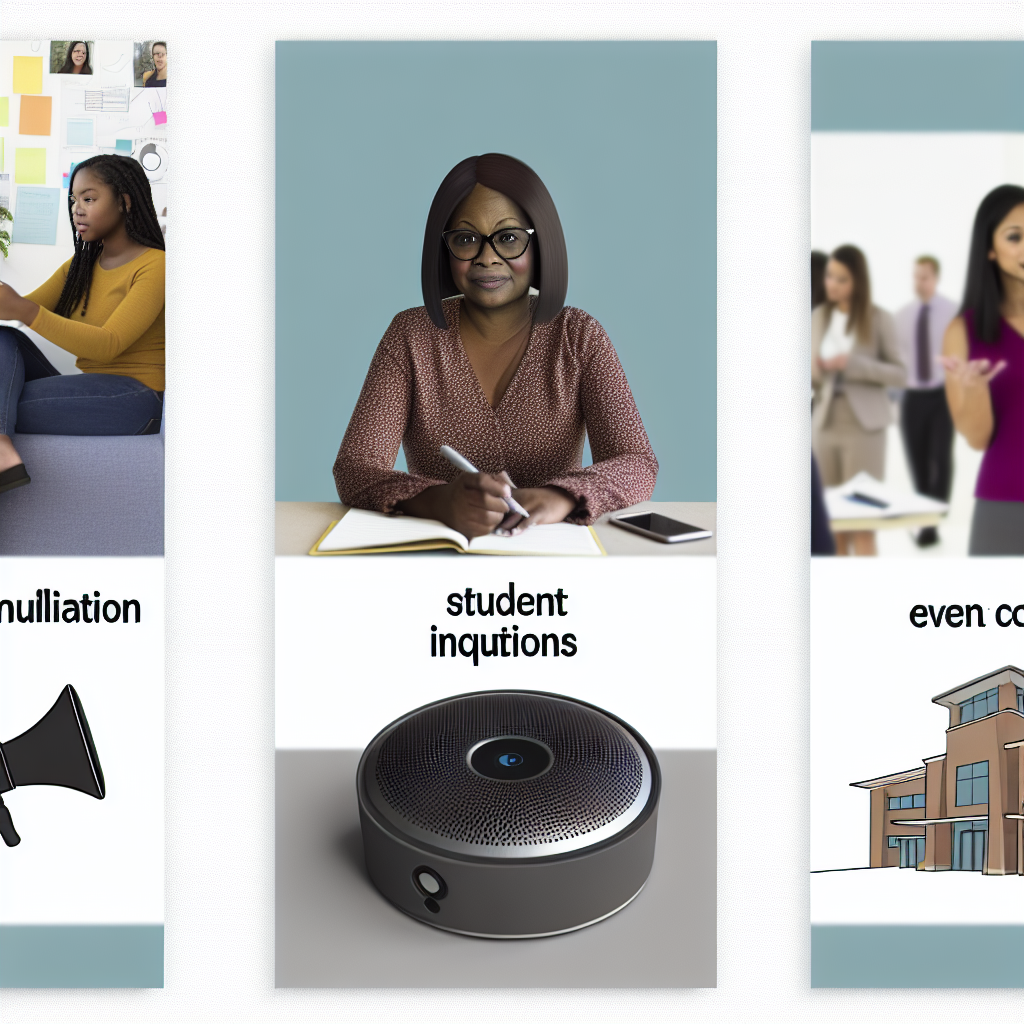Introduction
In today’s fast-paced digital landscape, educational institutions are increasingly turning to innovation to enhance their administrative efficiency and improve overall student experiences. One of the most groundbreaking technologies to emerge in recent years is voice-activated business solutions. These tools have revolutionized how educational organizations manage processes such as enrollment inquiries, student support, and event coordination. By integrating voice technology into their operations, educational institutions can streamline processes, engage more effectively with stakeholders, and ultimately foster a more inclusive and responsive learning environment.
Voice-Activated Solutions in Enrollment Inquiries
Enrollment inquiries are often the first point of contact for prospective students, making them a critical aspect of the educational experience. Traditionally, this process has been both time-consuming and cumbersome, requiring potential students to navigate through complex websites or wait extensively for responses via email or phone calls. Voice-activated business solutions address these challenges by offering a more intuitive interface for prospective students.
Through the use of natural language processing and voice recognition technology, educational institutions can provide immediate responses to enrollment questions. Prospective students can simply ask about application deadlines, required documents, or program options, and receive accurate information in real-time. This immediacy improves the user experience, as students feel more engaged in the enrollment process and are less likely to feel frustrated by delays.
Moreover, voice-activated systems can handle a higher volume of inquiries simultaneously, freeing staff from repetitive tasks. This allows them to focus on more complex inquiries that require personal attention. Thus, not only do these solutions enhance the efficiency of enrollment teams, but they also ensure that prospective students receive the necessary assistance promptly, resulting in better conversion rates.
Enhancing Student Support Through Voice Technology
Once enrolled, students invariably encounter challenges or require support throughout their academic journey. Voice-activated business solutions play a pivotal role in this regard by providing a direct and accessible method for students to seek assistance. This level of accessibility is particularly crucial in educational settings where students may feel overwhelmed or unsure about whom to contact for support.
By implementing voice technology, institutions can create virtual assistants capable of answering a broad range of questions, from academic advising to mental health resources. For instance, students can inquire about course prerequisites, guidance on study techniques, or resources available for academic support—all by simply speaking into their devices. Furthermore, these solutions can integrate with existing student management systems, allowing for personalized responses based on students’ specific needs and histories.
Voice-activated solutions also play a critical role in enhancing accessibility for students with disabilities. Students who may face challenges with traditional forms of communication can benefit significantly from voice technology, which provides an easier avenue for seeking help. By catering to diverse student needs, institutions demonstrate their commitment to inclusivity, thereby fostering a more supportive educational environment.
Streamlining Event Coordination
In the educational landscape, events are vital for community building, networking, and enhancing the overall student experience. However, coordinating such events often requires significant administrative effort, including scheduling, sending out invitations, and managing RSVPs. Voice-activated business solutions can transform this labor-intensive process into a more streamlined and engaging experience.
These systems can facilitate event planning by enabling staff to voice-command tasks such as creating event calendars, scheduling meetings, and sending reminders. For instance, educators or event coordinators can dictate new events directly to the system, which then automates the scheduling process, taking into account room availability and other logistical factors.
Moreover, when it comes to event participation, voice technology allows potential attendees to inquire about upcoming events and register effortlessly. Students or faculty can ask their virtual assistants about the details of specific events, including time, location, and agenda, and even register to attend via voice commands. This seamless interaction not only increases participation rates but also reduces the administrative burden associated with tracking attendance.
Improving Stakeholder Communication
Effective communication between educational institutions, students, and their families is paramount for fostering engagement and retention. Voice-activated solutions cater to this need by facilitating direct and transparent communication. Institutions can use these tools to relay important announcements, deadlines, and policy changes through voice messages to students and parents.
Additionally, voice technology can collect feedback from students and parents in real time. For instance, institutions can set up systems that allow families to provide their insights on school programs or suggest improvements, all through simple voice commands. This continuous loop of feedback helps educational institutions remain responsive to the evolving needs of their communities.
Furthermore, voice tools can play a role in fostering a sense of community within educational settings. For example, announcements regarding upcoming social events, student achievements, or alumni gatherings can be disseminated through voice-controlled platforms, keeping everyone informed and engaged.
Data-Driven Insights and Analytics
Incorporating voice-activated business solutions also opens up avenues for data collection and analysis. By monitoring interactions and inquiries, educational institutions can compile valuable data sets that unveil insights into student behavior, preferences, and areas for improvement. This information can inform future decisions regarding programs, services, and outreach strategies.
Additionally, voice technology can be integrated with data analytics tools to generate reports that assist in identifying trends, predicting enrollment increases or drops, and ultimately enhancing overall operational efficiency. In an era where data-driven decision-making is paramount, having access to such insights positions educational institutions to respond proactively to change and drive continuous improvement.
Conclusion
Voice-activated business solutions represent a transformative opportunity for educational institutions that seek to enhance their operational efficiency and improve student engagement. By streamlining processes such as enrollment inquiries, student support, and event coordination, voice technology not only improves the user experience but also allows institutions to allocate resources more effectively. Moreover, the incorporation of these tools fosters inclusivity, enhances communication, and provides valuable insights that can drive strategic planning. As schools and universities continue to embrace technological advancements, integrating voice-activated business solutions will undoubtedly become a cornerstone of effective education management, ultimately enriching the educational experience for all stakeholders involved.

